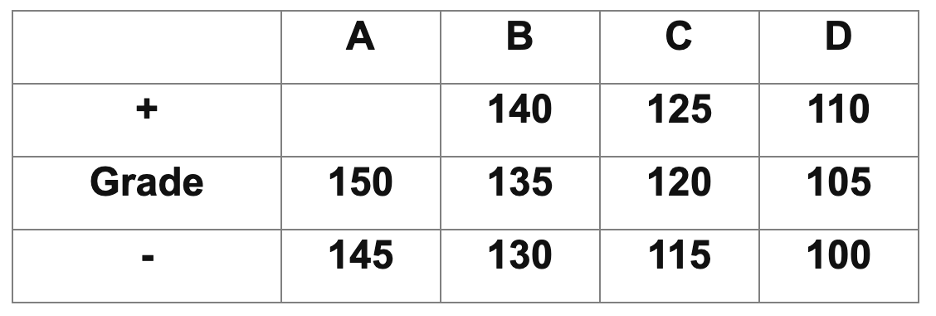In my 30+ years working in education, few aspects of the work cause more consternation than grading. Students, their parents, and teachers all find grades to be a stress-inducing aspect of school. In most cases, grading is marginal to education. When we are measuring what students know, talking or thinking about how to figure out what they know, or defending grading decisions, we are not building knowledge.
Even the recent focus on proficiency-based grading can be problematic, even more problematic than the schemes it replaced as the number of grades given is expanded; we find there is some much information to analyze we have to time left to teach.
I should be clear this post addresses grading; the work of deciding what is recorded on transcripts and is the teacher’s judgement of how well the student learned what they are supposed to learn in the course. The feedback teachers give to students is a much different part of teaching and it is central to learning.
Much that we spend our time and energy “grading” students is wasted. Defining complicated schemes with weighted categories are difficult to define and explain for teachers and more difficult for students to understand. As I started working with teachers who teach online and who use the gradebook in the learning management system their school provides, I realized just how difficult grading is to teachers and students.
Early in my career, I realized just how much complaining my colleagues did about grading. I also found I was annoyed by much of my own grading. When I finally figured out that teachers can define grading schemes as they wish (in most cases), I started to adjust my grading to see what changes I could make to make grading easier and more understandable.
Here is a summary of my practices.
1) Students earn “Course Points” for completing assignments my classes. The letter grades I report for students are based on the number of these they earn and they know in advance how many Course Points are needed for any grade. Figure 1 is an example for the course I am currently teaching. Students need 100 Course Points to pass, and 150 to have an A on their transcript.

2) The syllabus includes more Course Points than are needed for an A. In the current section, if students complete every assignment, test, wiki, blog, discussion and earn the maximum points for each, they can earn 180 Course Points. (Typically, my syllabus has about 15% more Course Points than are needed for an A.)
3) My syllabus also includes due dates, but they are somewhat flexible. Specifically:
- Tests and the exam (I have a total of 4 this term) must be completed during the specified window. There are several reasons for this which I won’t detail here.
- Projects that are submitted prior to the due date may be resubmitted. I will give feedback on those that do not earn the full Course Points and students can revise based on my feedback. Work that is not in by the due date is not penalized for being late, but I cannot guarantee I will review a second submission.
- Interactive activities have two parts… the “post” and the “reply” (the protocols based on the type of activity and the nature of the case). Students can earn points for posting before or after the due date, but they cannot improve their post and they cannot earn points for replies.
Here are some observations I have made about grading in my courses:
First, students self-differentiate the course. For example, those students who are not great test takers will do an extra project or two so they can make up for poor test grades. My course also includes several very sophisticated assignments. Some of my students are not that deeply interested in the course, so they can avoid those. Conversely, some students are not interested in the basic assignments as they have learned that elsewhere.
Second, we avoid the request for extra credit or extra time. My students know they can submit late with no penalty. I do still get requests, but I answer them all with “Yes, I look forward to seeing your work.” I do not have to see if they qualify for extensions, I don’t have to justify responses.
Third, students ask for help. Before due dates, I commonly get work and students have identified where they are having difficulty and make specific requests for help.
Fourth, students do not avoid work. Many of my students will complete all the projects, even after they have earned enough Course Points for an A, they continue to submit work. This includes the final exam. Students are expected to take a final exam in my courses; some will answer only a question or two then submit but many will complete the entire exam.
Fifth, I spend much less time figuring out what grades students earn. I spend my time looking at their work and giving feedback, but calculating grades (or setting up the electronic gradebook) is simply summing.
My purpose for this post is not to convince anyone to adopt my scheme. It is to encourage faculty to look at their grading scheme. Identify those parts that interfere with learning and cause you and your students to waste time or cognition trying to navigate it. Change your grading to minimize that waste. You will appreciate it. Your students will appreciate it, and you all will have less stress about grading.